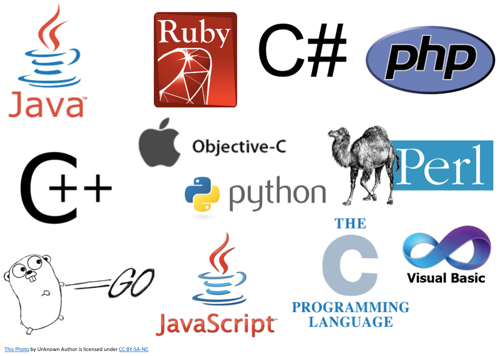
It was a typical Monday morning, and Michael sat at his desk with a steaming cup of coffee. As a software developer for over a decade, he often pondered the impact programming had on his life. It not only gave him financial independence but also opened a door to endless creativity and problem-solving opportunities. As he reflected on his journey, he realized how vital it was for people in today’s digital age to learn a programming language. But the question lingered, "Why should you learn to program, and how do you get started?"
The Power of Programming
Programming is like learning the language of the future. Imagine being able to communicate with machines and instruct them to perform complex tasks. Whether it’s developing mobile apps, building websites, automating repetitive tasks, or creating games, programming offers an array of possibilities. The world is becoming increasingly digital, and programming gives you the ability to not just be a consumer of technology but also a creator.
Take John, for instance. He worked in customer support, handling the same mundane tasks daily. Tired of the repetition, he learned Python in his spare time. Within six months, he created scripts to automate his most tedious tasks, freeing up hours of his time. Soon after, he switched careers to software development, where he now builds automation tools for companies.
Why Should You Learn Programming?
Problem-Solving Skills: Programming forces you to break down complex problems into smaller, manageable chunks. These problem-solving skills can translate into other aspects of your life, from making better business decisions to optimizing personal workflows.
Career Opportunities: In an era where digital solutions are the foundation of industries, programming skills are highly sought after. Jobs in web development, data science, AI, and software engineering are booming, and even non-technical jobs are increasingly requiring coding knowledge.
Creativity and Innovation: Programming turns your ideas into reality. Have an idea for an app? Want to build a website for your small business? Learning to code gives you the tools to create, innovate, and build solutions that don’t exist yet.
Financial Independence: Software development is one of the highest-paying fields. Once you master coding, you can freelance, develop apps, or even start your own tech company, giving you more control over your financial destiny.
Flexibility: Remote jobs are becoming more popular, especially in software development. Learning to code gives you the freedom to work from anywhere, at any time.
How Do You Get Started?
Now that you know the benefits of learning to code, you might be wondering, “Where do I begin?” Fortunately, the steps to becoming proficient in programming have never been easier. Let’s break it down:
Choose a Language The first step is to choose a programming language. Some of the most popular beginner-friendly languages include:
Python: Known for its readability and simplicity, Python is a great choice for beginners. It’s versatile, used in web development, data science, automation, and even artificial intelligence.
JavaScript: Essential for web development, JavaScript allows you to create dynamic and interactive websites. It’s a must-learn if you’re interested in front-end or full-stack development.
Ruby: Another beginner-friendly language with simple syntax. It’s often used for web development, especially with the Ruby on Rails framework.
HTML/CSS: If you’re interested in creating websites, HTML and CSS are the building blocks. They define the structure and design of web pages.
Online Learning Resources The internet is brimming with free and paid resources to help you learn programming from scratch. Some great platforms to get started are:
- Codecademy: Offers interactive lessons in various languages.
- freeCodeCamp: A community-driven platform that teaches coding through projects.
- Coursera: University-level courses on everything from Python to web development.
- YouTube: Tons of free tutorials that cover specific topics in detail.
Example: Michael started learning Python through Codecademy. He found the interactive exercises helpful in building confidence with writing code.
Start Small and Build Projects It’s easy to feel overwhelmed when learning a new skill, but programming is all about practice. Start small, like creating a simple calculator or a to-do list app. As you gain confidence, challenge yourself with more complex projects.
Join a Community Don’t learn in isolation. Join online communities like Stack Overflow, GitHub, or Reddit programming forums. Ask questions, collaborate on open-source projects, and learn from others’ experiences.
Real-life Example: Michael joined Python groups on Reddit, where he shared his code, received feedback, and learned best practices from experienced developers. This community involvement kept him motivated and accountable.
Learn Version Control with Git As you progress, learning Git is crucial. Git is a version control system that helps you keep track of changes in your code and collaborate with others. It’s essential for working in a team.
Build a Portfolio A portfolio showcases your projects and skills. As you build projects, upload them to platforms like GitHub and create a personal website to display your work.
Example: After completing a few Python projects, Michael uploaded his code to GitHub and created a website to showcase his portfolio. This helped him land his first freelance job.
Conclusion
Learning a programming language is an investment in your future. Whether you want to change careers, build your own tech products, or simply enhance your problem-solving skills, programming offers endless opportunities. With a clear path, accessible resources, and consistent practice, you can start your coding journey today and unlock the doors to innovation, financial independence, and personal growth.




